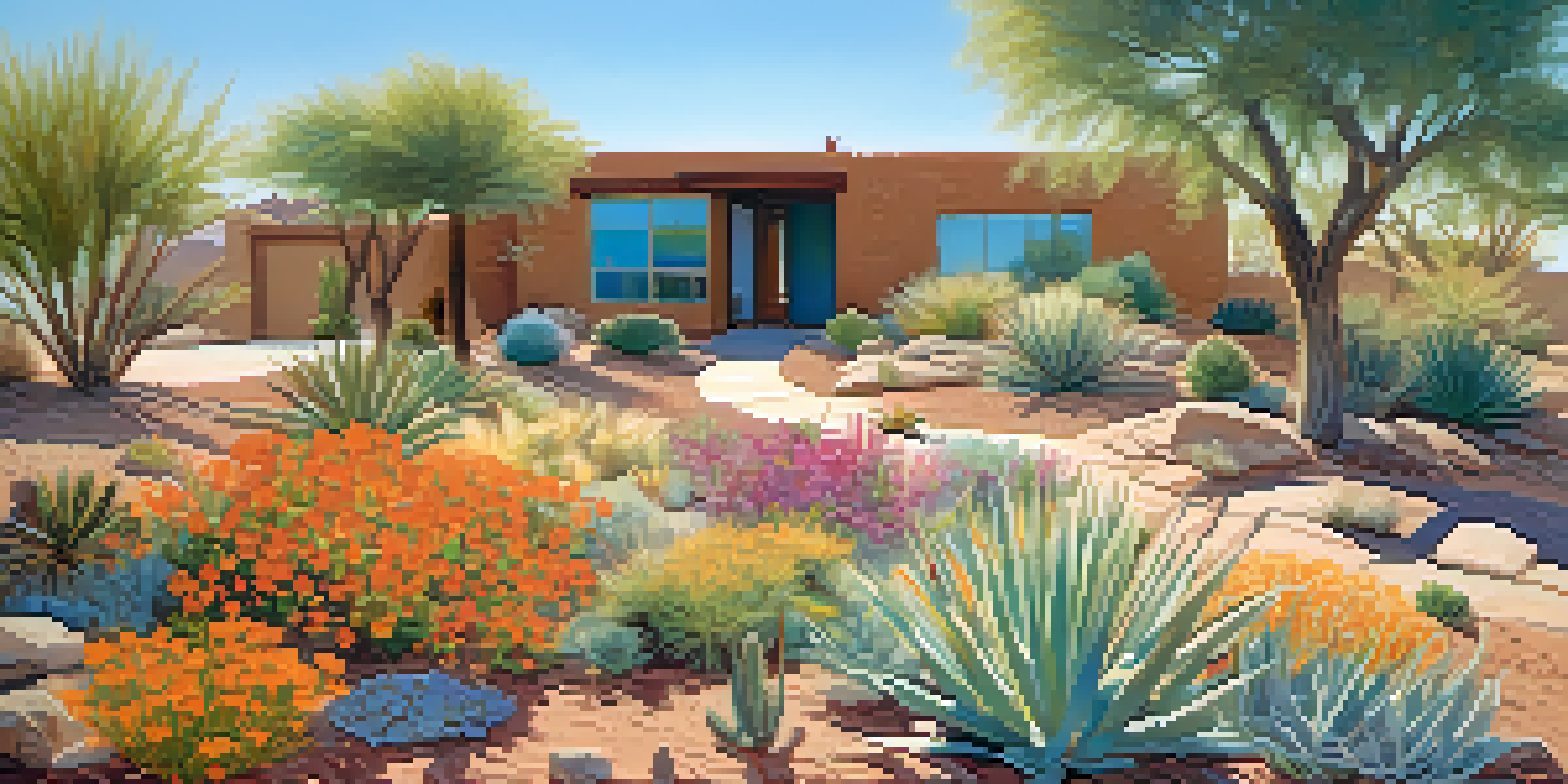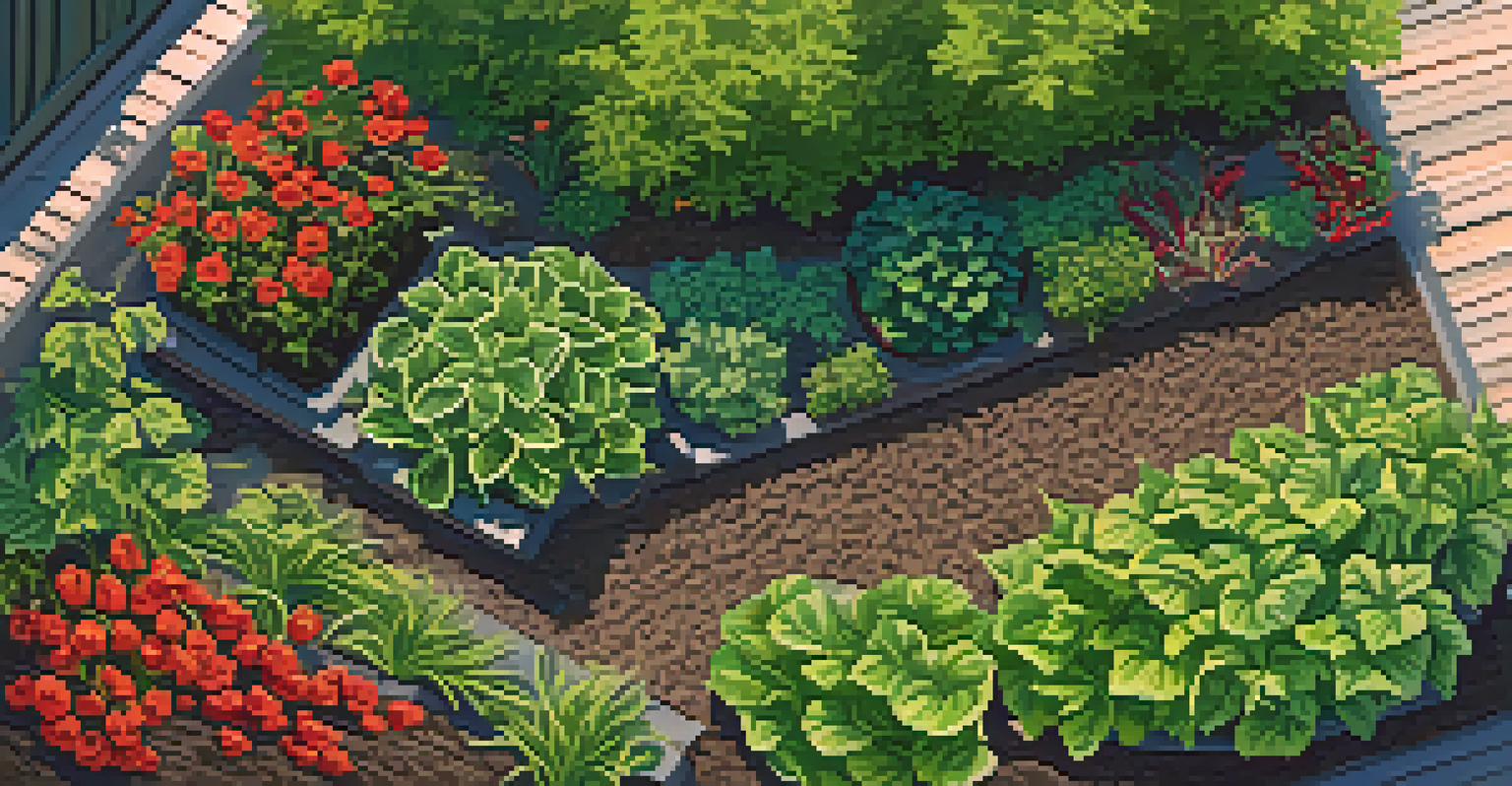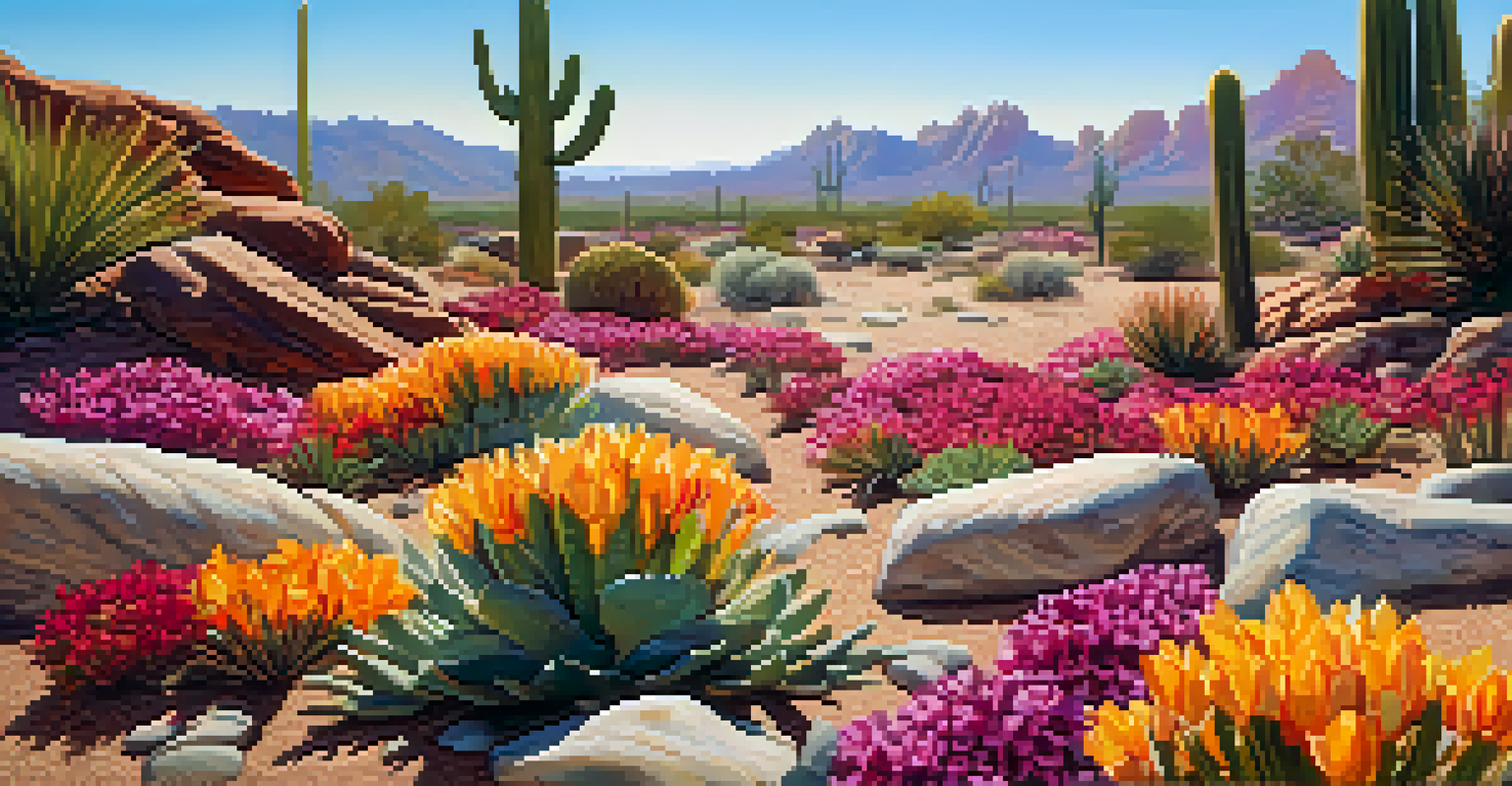Choosing the Right Mulch for Your Phoenix Garden

Understanding the Importance of Mulch in Phoenix Gardens
Mulch is more than just a decorative touch for your garden; it plays a crucial role in maintaining plant health, especially in a hot climate like Phoenix. By covering the soil, mulch helps retain moisture, which is essential for plants struggling in the intense summer heat. Additionally, it regulates soil temperature, ensuring that roots remain cool during scorching days.
Mulch is the gardener's best friend, providing protection, nourishment, and moisture to plants in need.
In Phoenix, where rainfall is sparse, mulch can be a gardener’s best friend. It reduces the need for frequent watering, saving you time and money while promoting a more sustainable gardening practice. Plus, it helps prevent soil erosion, keeping your garden looking tidy and well-maintained.
Lastly, mulch serves as a barrier against weeds, reducing competition for nutrients and water. By creating an environment that's less hospitable to unwanted plants, you can help your garden thrive with less effort and fewer chemicals.
Types of Mulch Suitable for Phoenix's Climate
When selecting mulch, consider options that thrive in arid conditions. Organic mulches, such as wood chips, bark, or straw, not only add nutrients to the soil as they decompose but also provide effective moisture retention. However, be mindful of their decomposition rate, as some may break down faster in the hot sun.

Inorganic mulches, like gravel or rock, are popular in Arizona gardens for their durability and low maintenance. They reflect heat and can help keep the soil cooler, making them a practical choice for desert landscapes. However, they do not provide any nutrients to the soil, so it's essential to supplement with organic matter as needed.
Mulch Retains Moisture in Heat
Mulch is essential for conserving moisture in Phoenix gardens, helping plants thrive in the intense summer heat.
Lastly, rubber mulch is another option that offers longevity and weed suppression. While it doesn’t provide nutrients, it does retain moisture and is resistant to degradation over time, making it a low-effort choice for busy gardeners.
How to Choose the Right Mulch for Your Plants
Different plants have varying needs, and the right mulch can help meet these requirements. For example, if you have native desert plants, consider using a coarse mulch that matches the natural surroundings. This not only complements the aesthetics but also supports the plants' growth by mimicking their native habitat.
The soil is the foundation of a garden; mulch is the blanket that keeps it warm and nourished.
On the other hand, if you’re growing vegetables or flowering plants, opt for organic mulches like straw or shredded leaves. These will break down over time, enriching the soil and providing essential nutrients to your plants. Just remember to keep the mulch a few inches away from plant stems to prevent rot.
It's also important to consider the color and texture of the mulch. Darker mulches can absorb heat, which may benefit heat-loving plants but could be detrimental to others. Choose a mulch that aligns with your garden's overall design while considering the specific needs of your plants.
The Benefits of Organic Mulch in Desert Gardens
Organic mulch brings a wealth of benefits to desert gardens, particularly in Phoenix. As organic materials break down, they enrich the soil with vital nutrients, creating a healthier environment for plants. This is especially beneficial in nutrient-poor desert soils that often require additional organic matter to support growth.
Moreover, organic mulch helps improve soil structure over time, enhancing its ability to retain moisture and promote healthy root development. This is crucial in a climate where water conservation is key. By using organic mulch, you're not only supporting your plants but also contributing to a more sustainable gardening approach.
Choose the Right Mulch for Plants
Selecting the appropriate mulch type is crucial, as different plants have varying needs that mulch can help meet.
Additionally, organic mulches attract beneficial microorganisms and insects, which can aid in pollination and pest control. This natural ecosystem support is invaluable in maintaining a healthy garden, allowing you to enjoy a vibrant landscape with fewer chemical inputs.
How to Apply Mulch Effectively
Applying mulch is more than just scattering it around; there's a method to ensure maximum benefits. Start by clearing the area of weeds and debris, as this will allow the mulch to perform its job effectively. Once the area is clean, lay down a layer of mulch that is about 2-4 inches thick, depending on the type of mulch you're using.
Make sure to keep the mulch a few inches away from plant stems and trunks. This prevents moisture buildup that could lead to rot or fungal issues. Also, avoid piling mulch too high, as this can suffocate roots and create an unhealthy environment for your plants.
Regularly check the mulch layer throughout the growing season. As it decomposes or gets washed away, you may need to replenish it to maintain the desired thickness. This care will ensure that your plants continue to receive the moisture retention and weed suppression benefits that mulch provides.
Common Mistakes to Avoid When Mulching
While mulching is relatively straightforward, there are some common mistakes that can hinder your garden's success. One of the biggest errors is using too much mulch, which can suffocate plants and lead to decay. Remember, a layer of 2-4 inches is generally sufficient for most gardens.
Another mistake is applying mulch too early or too late. For optimal results, mulch should be applied after the soil has warmed up in the spring but before the heat of summer arrives. This timing helps retain moisture and protect soil health during the hottest months.
Organic Mulch Boosts Soil Health
Using organic mulch enriches desert soils with nutrients and supports beneficial microorganisms, promoting a healthier garden.
Lastly, avoid using fresh wood chips or bark as mulch, as they can rob the soil of nitrogen as they decompose. Instead, opt for aged or composted materials that will nourish your plants rather than hinder their growth.
Maintaining Your Mulch for Longevity
To keep your mulch effective, maintenance is key. Regularly check for areas where the mulch may have thinned out, especially after heavy rains or winds. Replenishing the mulch as needed will ensure that it continues to provide moisture retention and weed suppression.
Additionally, monitor for any signs of decomposition. Organic mulches will break down over time and may need to be replaced or added to maintain the desired thickness. This not only keeps your garden looking tidy but also ensures that your plants have the nutrients they need.

Lastly, keep an eye out for pests or diseases that may thrive in overly wet mulch. Maintaining proper airflow and keeping mulch layers appropriate can help prevent these issues, ensuring a healthy and thriving garden.